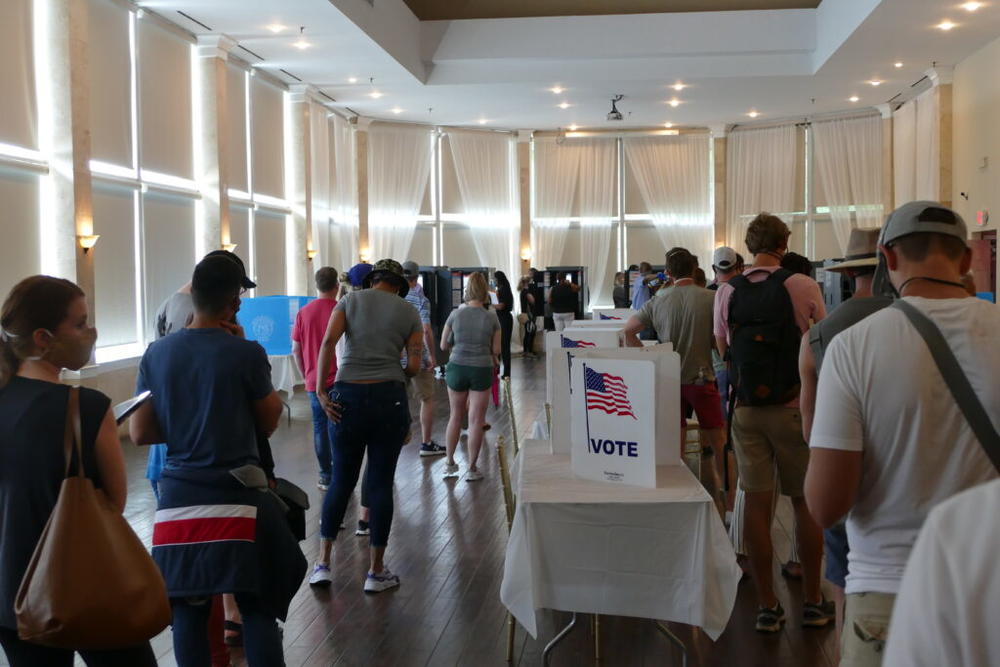
Caption
Georgia Republican legislators are pushing another comprehensive voting bill for 2022 that will allow the GBI to investigate election fraud and tighten the process for handling paper ballots. House Bill 1464 builds upon the controversial overhaul of voting law in 2021.
Credit: John McCosh/Georgia Recorder 2020 file photo

